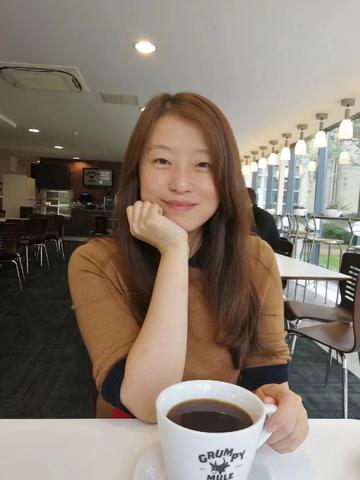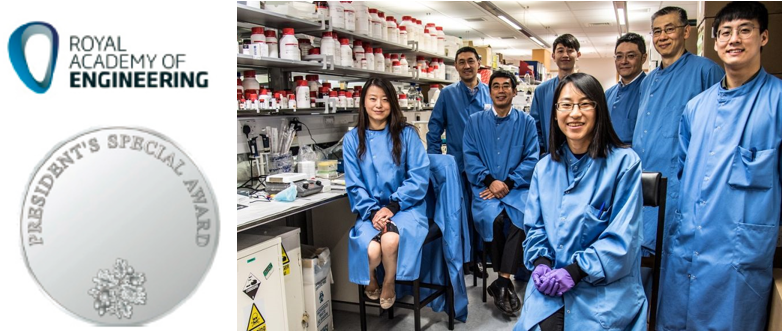Dr. Hong Chang: ‘I’ll do my best to make every penny invested in research worthwhile.’

Dr. Hong Chang
Senior Research Scientist
In July 2021, Dr. Hong Chang joined OSCAR as a Senior Research Scientist in OSCAR-Prenetics Innovation and Technology Centre for Advanced Diagnostics.
Before joining OSCAR, Dr. Chang was Chief Technology Officer and QA/RA manager at MEStar (Oxford spin-out technology company) and is experienced in obtaining CE/MHRA, ISO13485 application approval and maintaining QMS system.
Can you tell us about your current work at OSCAR’s Molecular Diagnostics Innovation and Technology Centre (ITC)?
My work at the ITC concerns the development of advanced medical diagnostic technologies and testing equipment and the design and preparation of technical documentation for related quality management systems. Rather than a pure scientific researcher, I would say I’m more of a quality management system person and project manager using my technology background.
I have an educational background in biomaterial science and engineering. During my undergraduate, master's and doctoral studies, I learned and studied polymer materials, biomaterials and microfluidics and bioreactors. You can see my research was gradually moved closer to practical applications. After my PhD study in London, I worked as a postodoc at Oxford University and then Oxford university spinout in the UK, with responsibilities in the development and project management of biomedical products. As a result, I have gained experience in product development, project management, establishment of quality management system, clinical trials and regulatory approvals.
What value and impact does your work create?
We often talk about applying what we learn, and this is what every researcher strives for, particularly for engineers and applied scientists. But when we get in practice, we find that despite days and nights of experimenting and several publications, our research and development results are still a long way from being ready to serve the public. So it is not difficult to understand that many technology powerhouses, including China, attach great importance to the transfer of scientific and technological research results into applications. But whether a transfer will be successful is not simply a matter of handing over a patent; there are too many intricacies that can make or break the technology, right from when a research project is initiated.
I can say that all the setbacks, failures, the courage to learn from scratch, the uneasiness felt throughout clinical validation, and the joy of bringing a real product/service to the market are all precious to me. All I can do is doing my best to make our technology grow quickly into a product that can create economic and social value so that every penny invested in research is worthwhile.

Dr Hong Chang (far left) was a key team member to develop a rapid test kit for coronavirus, led by Prof Cui Zhanfeng and Prof Huang Wei. Hong was instrumental in proving the kit's compliance and gaining regulatory approval. The team was awarded the President’s Special Awards for Pandemic Service by the Royal Academy of Engineering, UK in 2020.
What makes a good practitioner within your field of expertise?
I think to be a good practitioner is about being versatile and having the ability to switch mindsets freely, as my field involves more than just the early-stage R&D, but more importantly technology transfer. I often talk to my teammates about the idea of switching between mindsets.
Ideally, researchers should have a very active mind and have the courage to trial and error. The well-known professors and academics I know are all highly imaginative, exploratory and driven, supported by profound knowledge. This is how new breakthroughs are made.
However, a good 'product designer' needs adaptive and organized thinking. He/she needs to understand what the end users expect, how each part of a product is manufactured, troubleshoot every step that could go wrong, and clarify the technical specifications of the final product.
For a ‘quality person’, the emphasis is on adherence, especially in the case of quality management system for medical products. Standards, once established, do not change; any deviation is treated with zero tolerance, rather than making do; the fundamental purpose of building a quality management system is to prevent, not to inspect; and every technical report must be rigorous.
As you can see, there is a big difference between these two modes of thinking. The last thing we want to see is designing a product with the mindset of a researcher and doing research with the mindset of a quality person. The best way is to understand each type of thinking and to be able to switch between them effortlessly as required by your responsibilities and project progress. This allows for better mutual understanding and communication within the team, and it helps the project to gather pace.
Researchers are great learners, and we can all be multi-faceted.
What’s your take on the theme of this year’s International Women’s Day ‘breaking the bias’?
Breaking bias is about creating a fundamentally equal and friendly society. Eliminating misconceptions is about trying to understand others with patience and sincerity. This way we’ll have not only a world of gender equality, but also a world of equality of races, beliefs and ideas. This is a beautiful theme, but it requires overcoming human weaknesses to achieve it. I would like to always remind myself to become such a wonderful person.
What would you say about the women you work with at OSCAR?
Despite the time difference between China and the UK, they are always on time for every meeting, whether it's early morning or late at night at home. Some of them have young children, and some have a boyfriend, but whenever there is an urgent experiment, whether it's a weekend or a holiday, they finish it on time and report it thoroughly; they dress appropriately for academic presentations, media interviews, or meetings with local and international visitors; and during the rare, relaxed moments of team building, they would enjoy themselves like a bunch of kids.
In short, they are ‘goddesses’!
What advice would you give to women who intend to pursue a career in research?
"When you intend to do something, it means you take an interest in it. My advice is to turn this interest into a passion. Only when you’re passionate enough will you be able to break out of your comfort zone and keep improving yourself.
First of all, it takes constant learning of new knowledge to become a researcher. The master's and doctoral studies help to hone our ability to learn. Passion endows you with the confidence and patience to learn, grasp and to innovate.
Secondly, to be a good researcher, you need to be independent and responsible. Oftentimes, you’ll be tackling a technical problem independently, and your teammates need your mentoring, and only with passion will you be willing to take on that responsibility. At the same time, teamwork and collaboration are also important, as nowadays nobody can solve the real big problem herself.
What’s equally important for you to become a good researcher is to develop your leadership skills. This includes setting a clear direction, focusing on delivering results, establishing authority and strengthening your communication skills. Leadership is rarely emphasised in our academic education, but a good researcher shows more confidence in talking about their research and wins the trust of others, which in turn is more conducive to project applications. Leadership is also essential for mentoring students and forming your own research team in the future.



